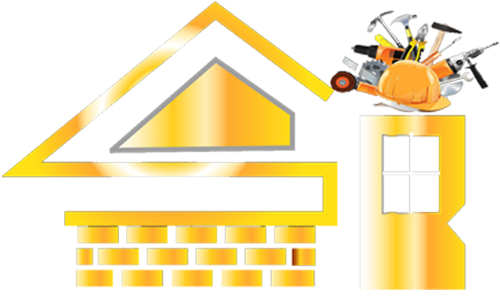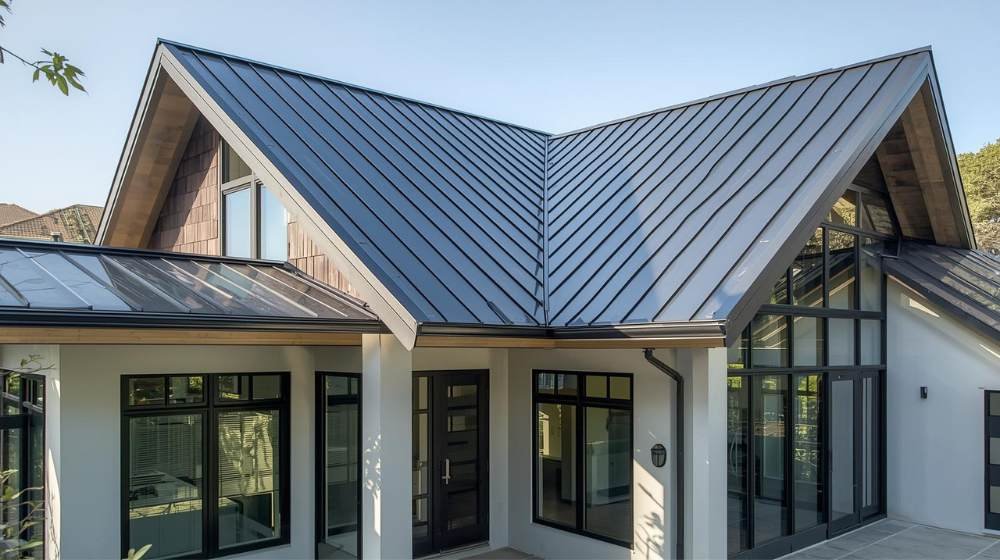
If you’re looking to replace your roof or build a new one, it’s crucial to choose the right material, especially when considering Brooklyn’s unique weather conditions. You need something that can resist heavy snow in winter, the summer heat, or frequent rain. I think metal roofing and asphalt shingles are two popular options, but which one truly works best for Brooklyn’s climate?
Don’t worry; we’re (SR General Construction) here to help you make that decision. In this guide, we’ll explore the key differences between metal roofing vs asphalt shingles. Here we tell you the pros and cons of each and explain which one is better suited for your home. Let’s dive into the details and find out which roofing material is right for you!
What are the Key Differences Between Metal Roofing and Asphalt Shingles?
Are you confused between two common types of roofing materials? If you want to compare metal roofing and asphalt shingles, you have to consider many factors.
Metal roofing lasts longer, resists harsher weather, and requires less maintenance than asphalt shingles. Asphalt shingles are cost-efficient but tend to break down more quickly, and they need more repairs over time. Metal roofs reflect heat, which makes them more energy-efficient, while asphalt shingles tend to absorb warmth. Ultimately, metal roofing provides more long-term benefits despite its higher initial cost.
Which One Is More Costly: A Metal Roof or Asphalt Shingles?
Metal roofs are costlier than asphalt shingles. The average cost of a metal roof is between $5 and $15 per square foot. Asphalt shingles are more affordable. Its cost ranges from $3 to $5 per square foot. While metal roofing is expensive, it offers long-term savings due to its durability and energy efficiency.
Which One Is More Durable: Metal Roofing vs Asphalt Shingles?
Metal roofs are far more durable. Metal roofs can last 40–70 years with little maintenance. They can resist extreme weather, including hail, wind, and heavy snow. Asphalt shingles, on the other hand, last only 15–30 years. They are more prone to damage from high winds, rain, and UV rays.
Which One Is More Energy Efficient: Metal Roofing vs. Asphalt Shingles?
Metal roofs are about 20–30% more energy-efficient than asphalt shingles. They reflect up to 70% of the sun’s heat. It reduces cooling costs during the summer. Asphalt shingles absorb heat, which makes your home warmer and increases cooling expenses. In contrast, metal roofs can save on energy bills in both hot and cold climates.
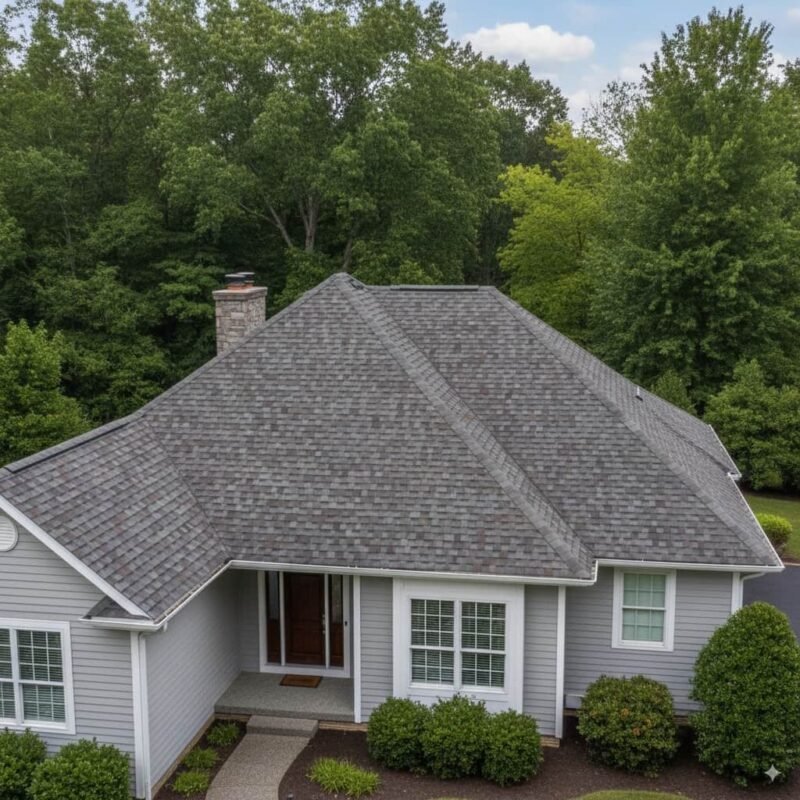
What Is the Maintenance Difference Between Metal and Asphalt Roofing?
Metal Roofing Maintenance
- Inspect for rust or corrosion every 3 to 5 years.
- Check seams and fasteners for loosening.
- Clear away leaves or scraps to prevent clogged gutters.
- Repaint after 20–30 years, depending on the material.
Asphalt Shingle Maintenance
- Check for missing, cracked, or curled shingles.
- Remove moss or algae growth regularly.
- Inspect gutters and downspouts for clogs.
- Replace damaged shingles after storms or wear.
Which One Is More Eco-Friendly: Metal or Asphalt Roofing?
Metal roofing is more eco-friendly, as it is 100% recyclable at the end of its life. It also has a lower environmental impact during production. However, asphalt shingles contribute to more waste in landfills since they aren’t recyclable. Additionally, producing asphalt shingles requires more energy and resources, making them less sustainable compared to metal roofs.
Advantages and Limitations of Metal Roofing
When it comes to roofing, metal offers many benefits but also some challenges. It’s important to consider both the advantages and limitations before deciding if a metal roof is the right choice for your home or business.
Advantages of Metal Roofing
- Long Lifespan: Metal roofs can last 40 to 70 years. Metal roofs don’t need to be replaced as often as other types of roofs. They last for decades in tough conditions, so you won’t have to buy new ones as often.
- Weather Resistance: They handle extreme weather with ease. Metal roofs perform well in heavy rain, snow, and high winds. They can also resist hail damage, which makes them a great choice for places with bad weather.
- Energy Efficiency: Metal roofs reflect heat and light. They reduce cooling costs in the summer by reflecting sunlight. This helps keep your home or business cooler and cuts down on air conditioning use.
- Fire Resistance: Metal is non-combustible. Metal roofs will not catch fire, which adds an extra layer of protection to your building. This feature is especially important for homes in fire-prone areas.
- Low Maintenance: Metal roofs require very little upkeep. They resist rust, mold, and mildew. You don’t need to worry about regular repairs or replacing damaged sections, unlike traditional roofs.
- Eco-Friendly: Metal roofs are recyclable. They can be recycled when they are no longer needed, which cuts down on trash in landfills. Many metal roofs are made from recycled materials, making them a sustainable option.
Limitations of Metal Roofing
- Higher Initial Cost: Metal roofs can be more expensive at first. While they last longer, the upfront cost of a metal roof is higher than traditional options like asphalt shingles. This could be a drawback for homeowners with tight budgets.
- Noise: Metal roofs can be loud during heavy rain or hail. During a storm, the sound of rain or hail hitting a metal roof can be much louder than on other materials. Adding insulation can help, but you should think about it.
- Denting: Soft metals like aluminum may dent. Although durable, softer metals are prone to dents from falling debris or hail. Steel options are less likely to dent but can still be affected by heavy impact.
- Expansion and Contraction: Metal expands and contracts with temperature changes. Metal panels shift with temperature changes, which may cause warping or cracking if not installed correctly. This factor needs to be considered when choosing your material and installation method.
- Specialized Installation: Installation requires expert skills. Installing a metal roof is more complex than traditional roofing. It’s important to hire a professional to ensure proper installation and avoid future issues.
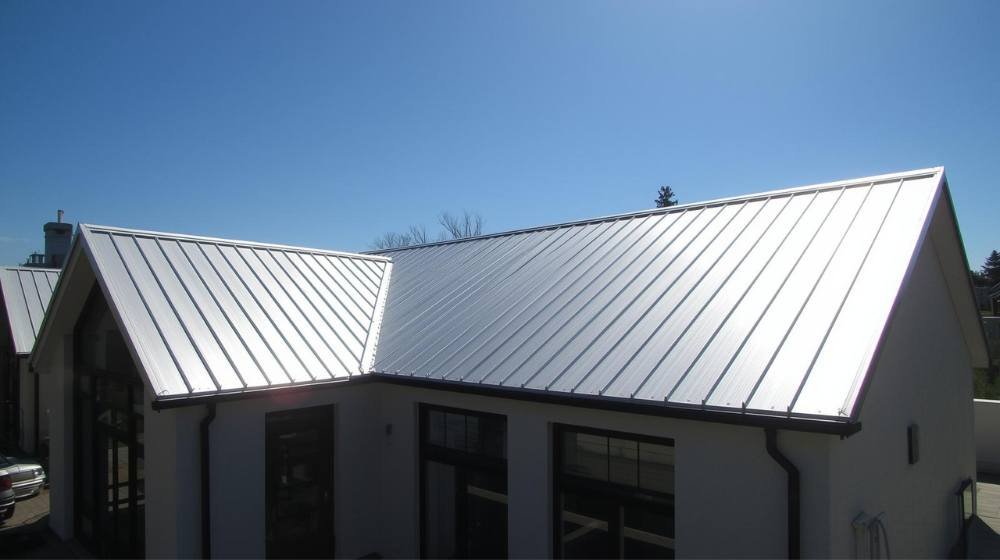
The Advantages and Limitations of Asphalt Shingles
Asphalt shingles are a popular choice for homeowners due to their affordability and reliability. They come with various benefits but also have a few limitations. In this section, we will explore the advantages and limitations of asphalt shingles to help you make an informed decision for your home.
Advantages of Asphalt Shingles
- Affordable: Asphalt shingles are one of the most cost-effective roofing options.
- They offer excellent value for money, especially when compared to materials like slate or metal.
- Easy to Install: Asphalt shingles are simple to install, which makes them a popular choice for both homeowners and contractors. The installation process is quick and doesn’t require specialized skills, which reduces labor costs.
- Durable: Asphalt shingles are built to tackle harsh weather conditions. They are designed to handle wind, rain, and snow, which makes them a good fit for areas like Brooklyn.
- Variety of Styles: Asphalt shingles come in many colors and styles. This allows homeowners to choose shingles that match the look and feel of their home.
- Low Maintenance: Asphalt shingles require little maintenance. Routine inspections are usually enough to keep them in good condition for years.
- Fire Resistant: Many asphalt shingles are treated to be fire-resistant.
- This adds an extra layer of protection, particularly in dry or fire-prone areas.
- Energy-Efficient Options: Some asphalt shingles are designed with reflective coatings. These shingles can help reduce cooling costs by reflecting sunlight away from your home.
Limitations of Asphalt Shingles
- Shorter Lifespan: Asphalt shingles generally last 15 to 30 years. This is shorter than other materials like slate or metal, which can last 50 years or more.
- Despite their durability, extreme weather can damage asphalt shingles. Hailstorms and strong winds can cause shingles to crack or blow off.
- Environmental Impact: Asphalt shingles are made from petroleum-based products. This raises environmental concerns, especially since they are not easily recyclable.
- Vulnerable to Algae Growth: In humid environments, asphalt shingles can develop algae stains. This affects the appearance of the roof and may require cleaning to maintain its look.
- Potential for Cracking: Over time, asphalt shingles can crack and become brittle. This is often due to UV exposure, temperature changes, or improper installation.
- Not Ideal for Flat Roofs: Asphalt shingles are better suited for sloped roofs. On flat roofs, they may not perform as effectively, as water can pool on the surface.
What Should You Consider When Choosing a Roof Type?
The right roof selection is not an easy task for your home. You need to think about more than just appearance; it’s about finding a material that fits your needs, your budget, and your local weather. Here are the key factors to consider when choosing a roof type:
- Climate: Consider the weather in your area. If you live in a region with extreme weather like Brooklyn, you need a roof that can resist snow, rain, and high winds. Metal roofing is more durable in such conditions.
- Budget: Think about both upfront and long-term costs. While metal roofing has a higher initial cost, it lasts longer and requires low maintenance, which saves you money over time. Asphalt shingles are cheaper upfront but may need more repairs.
- Durability: Consider how long the roof will last. Metal roofing can last 40-70 years, while asphalt shingles typically last 20-30 years. If you’re looking for something that lasts, metal roofing is the better option.
- Energy Efficiency: Think about how the roof affects your energy bills. Metal roofing reflects heat. It will reduce cooling costs. Asphalt shingles absorb heat, which can make your house warmer in the summer. It will increase cooling costs.
- Maintenance Needs: Consider how much effort you’re willing to put in for maintenance. Metal roofing requires minimal maintenance, while asphalt shingles need more frequent repairs and checks.
- Outlook: Your roof should match your home’s style. Metal roofing can provide a modern, sleek look, while asphalt shingles can be a good fit for traditional and classic homes.
- Environmental Impact: Consider the sustainability of the material. Metal roofs are recyclable, which makes them more eco-friendly. Asphalt shingles contribute to landfill waste since they are not easily recyclable.
Which One Is Better Between Metal Roofing and Asphalt Shingles for Brooklyn’s Weather?
For Brooklyn’s weather, metal roofing is the better choice. It can resist harsh winter snow, heavy rain, and high winds, which offer long-lasting protection. While asphalt shingles have a cheaper initial cost, metal roofs save money in the long run with less maintenance and better durability.
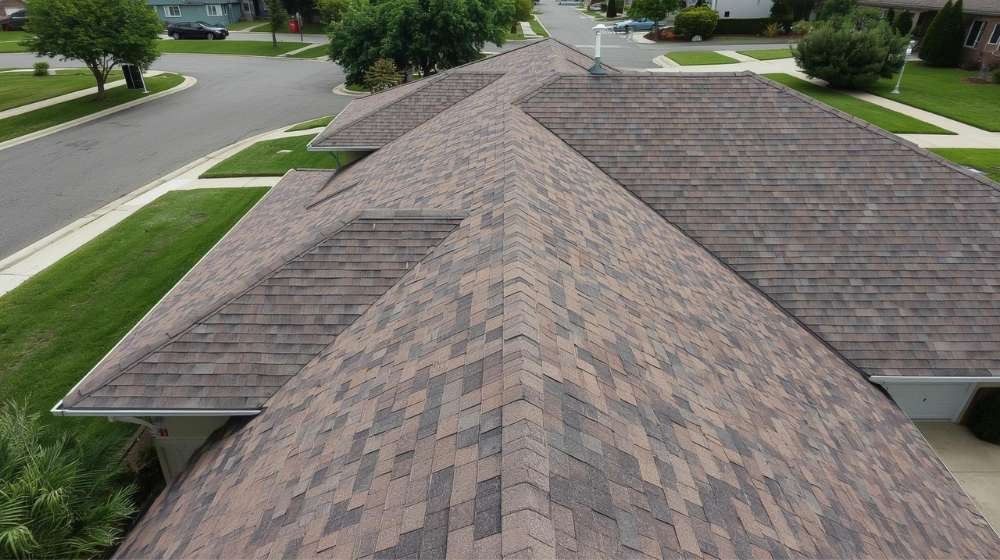
Where to Choose a Professional Roofing Contractor?
Are you looking for an expert roofing contractor in Brooklyn, NYC? SR General Construction has you covered! Our business is located at 8807 Avenue B, Brooklyn, NY 11236, United States, in the Canarsie area.
We proudly serve all areas of Brooklyn with high-quality, durable roofing solutions. From new installations to repairs and maintenance, we provide the best service at affordable prices. Contact us and experience why we’re Brooklyn’s roofing experts!
FAQ
1. What is the difference between metal roofing and asphalt shingles?
Metal roofing is more durable and energy-efficient and requires less maintenance than asphalt shingles. Asphalt shingles are less expensive but tend to wear out faster. Metal roofs can last 40-70 years, while asphalt shingles last 15-30 years.
2. Is metal roofing more expensive than asphalt shingles?
Yes, metal roofing has a higher initial cost, typically ranging from $5 to $15 per square foot. Asphalt shingles are cheaper, costing about $3 to $5 per square foot. However, metal roofs save money in the long run due to their durability.
3. How long does a metal roof last compared to asphalt shingles?
Metal roofs last 40–70 years. On the other hand, asphalt shingles last only 15–30 years. Metal roofing offers superior longevity, especially in harsh climates.
4. Are metal roofs energy-efficient?
Yes, metal roofs reflect up to 70% of the sun’s heat, which reduces cooling costs. Metal roofs are about 20–30% more energy-efficient than asphalt shingles.
5. Which roofing material is more eco-friendly, metal or asphalt shingles?
Metal roofs are 100% recyclable and have a lower environmental impact. Asphalt shingles contribute to landfill waste, as they aren’t recyclable. Metal roofing is the more sustainable option.
6. Are metal roofs noisy during a storm?
Metal roofs can be noisy during heavy rain or hail, especially if there is no insulation. However, proper insulation can significantly reduce the noise level.
